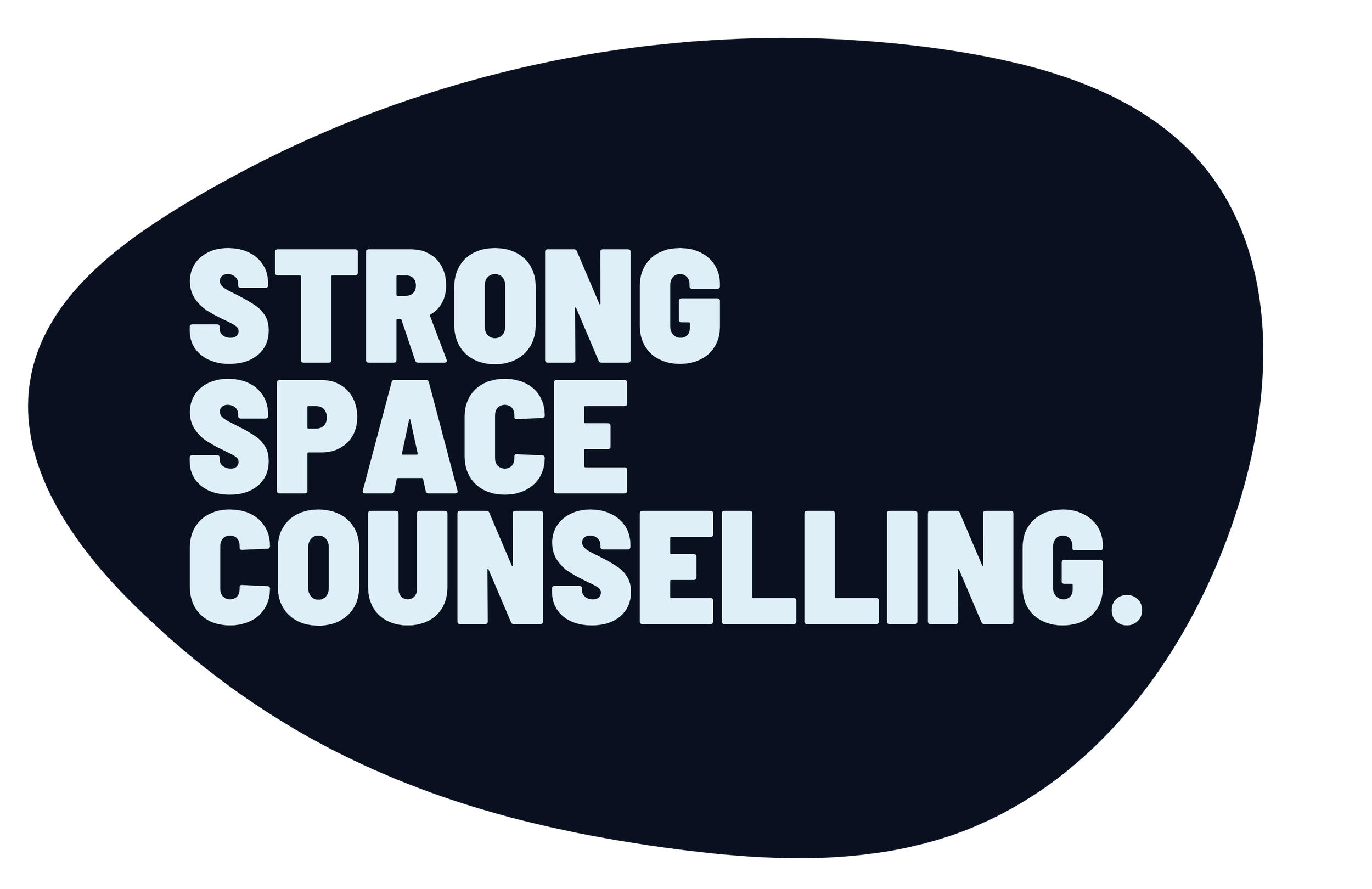Navigating the Maze of Men's Mental Health Services: What You Need to Know
Seeking help for men is an incredibly brave, proactive approach to achieving a more fulfilling life. Unfortunately, we’re not often taught to recognise and appreciate the severity of our mental health issues, let alone seek out specialised men’s mental health support. Societal norms have deterred men from engaging in these services, creating a gap in both awareness and accessibility, and leading to detrimental outcomes.
As such, when we do look for these services, it can be a daunting task to understand the intricate landscape of our help options and determine which is right for you.
In this article, our team at Strong Space Counselling aim to demystify the realm of men’s mental health services, illuminating the various paths available for those seeking help.
Types of Mental Health Support Available
Psychiatrist
Role and Qualifications
Psychiatrists are doctors with a medical degree specialising in mental health. Their expertise lies in understanding the complex relationship between the mind and the body, leaving them qualified to diagnose mental health conditions and prescribe medication.
When to See a Psychiatrist for Men’s Mental Health Support
Psychiatrists play a vital role in men’s mental health support, especially for those dealing with complex or chronic mental health conditions. Men should consider seeing a psychiatrist for conditions that might require medication, such as severe depression, bipolar disorder, or schizophrenia.
Psychologist
Role and Qualifications
Psychologists focus on psychotherapy and treating emotional and mental suffering through behavioural intervention. They are not medical doctors and typically do not prescribe medications, but will require a degree in psychology.
When to See a Psychologist for Men’s Mental Health Support
Psychologists can help men work to understand and explain certain thoughts, feelings and behaviours, often through methods of observation, assessment, and experimentation.
Counsellor
Role and Qualifications
Counsellors are specifically trained to provide guidance on a host of personal or psychological problems. They are adept at listening and offering advice on coping strategies and emotional support.
When to Consult a Counsellor for Men’s Mental Health Support
Counselling is suitable for men facing a range of emotional and psychological challenges on a day-to-day basis. A counsellor can provide help for men through various sessions of listening, empathising, and delivering encouragement and empowerment. It can be an excellent option for men seeking mental health services built around guidance through difficult times, improving their personal well-being.
Social Worker
Role and Qualifications
Social workers are trained to help people overcome challenges in their lives. They often work within the community and can provide links to other support services, having completed a degree in a specific field, such as mental health or community services.
When to Consult a Social Worker for Men’s Mental Health Support
Social workers can offer men general guidance, resources, and connections to additional mental health services where required. They are equipped to assist with issues related to physical and mental well-being, but also financial challenges and even housing circumstances.
Coach
Role and Qualifications
Coaches focus on personal development, goal setting, and behaviour change. They are not mental health professionals but can help with motivation and personal growth.
When to Consider Coaching for Men’s Mental Health Support
Men often consider coaching when they seek to achieve specific life goals or improve personal effectiveness. Coaching can complement mental health support for men to a degree, especially in the realms of career and personal development, but may not address more comprehensive challenges.
Different Offerings with Men’s Mental Health Services
Employee Assistance Programs (EAP)
EAPs are work-based programs offering employees short-term counselling, referrals, and follow-up services. They provide a confidential, convenient, and easy-to-access an array of mental health services, often at no cost to the employee. EAPs are a vital resource for men’s support, addressing a range of issues from stress to anxiety concerns.
Community Organisations
Many community organisations often offer mental health services on a sliding scale basis. They provide an accessible option for men seeking affordable mental health support. Some of these include:
These organisations can be a lifeline for those who might not otherwise seek or afford help.
Group Practice
Group practices involve multiple mental health professionals working together in a shared environment. They offer a range of services and can provide a collaborative approach to men’s mental health support. An open, non-isolated setting may be particularly beneficial for those seeking diverse perspectives and specialties under one roof.
Private Practice
Private practices deliver personalised care tailored to individual needs. In this setting, clients can build a one-on-one relationship with their counsellor or therapist, allowing for deep, tailored work. Strong Space Counselling, for example, offers a range of services catering specifically to men's mental health, including depression counselling, anger management support, advice around fatherhood and parenting, relationships and dating, male sexuality, and much more, emphasising a supportive and understanding approach.
Modes of Men’s Mental Health Support Delivery
In-Person
In-person sessions offer a personal connection and direct interaction with your counsellor or therapist, helping to build a sense of trust and rapport. Unfortunately, it may not be as convenient and accessible for those with mobility issues or busy schedules.
Group Therapy
Group therapy provides peer support and a sense of community. It allows men to learn from others' experiences and offers multiple perspectives. The downside could be a lack of individual attention and potential discomfort in sharing personal issues in a group setting.
Online/Telehealth
Online and telehealth counselling can provide flexibility and accessibility, especially beneficial for those with time constraints or living in remote areas. Some may prefer the personal touch of face-to-face interactions, but with advancements in video communication technology, it’s the next best thing.
Phone Counselling
Phone counselling offers convenience and privacy, as it can be done from anywhere. It's particularly useful for those who prefer not to be seen during sessions. There is a lack of visual cues, of course, which may be preference in many forms of therapeutic communication.
Email/Instant Messaging
This mode provides a written record of conversations and can be less intimidating for some. It allows time to think before responding, but does lack the immediacy and depth of verbal communication, which may not be suitable for more complex issues.
How to Choose the Most Suitable Mental Health Support Option for You
Choosing the right mental health service provider and setting is imperative for effective support and treatment. Here are some factors to consider as you review your options:
Personal Comfort: You need to feel comfortable and safe with the mental health professional and service in a setting that will deliver the most value.
Specialisation and Expertise: Look for services specialising in the specific issues or conditions you're facing.
Accessibility: Consider how easily you can access the service, whether it's in-person, online, or via phone.
Cost: Evaluate the cost of services and whether they fit within your budget or are covered by insurance or health plans.
Referrals and Recommendations: Seek recommendations from healthcare providers or, if you feel comfortable and know someone who feels safe to share with, trusted individuals who have utilised similar services.
Consultation and Trial Sessions: Take advantage of initial consultations or trial sessions to gauge the fit and effectiveness of the service.
Credentials and Qualifications: Verify the credentials and qualifications of the mental health professional or service.
Therapeutic Approach: Consider if the therapeutic approach used aligns with your preferences and needs.
Confidentiality and Privacy: Ensure the service adheres to strict confidentiality and privacy standards.
Support Network: Consider services that offer or are linked to a broader support network, providing additional resources when needed.



